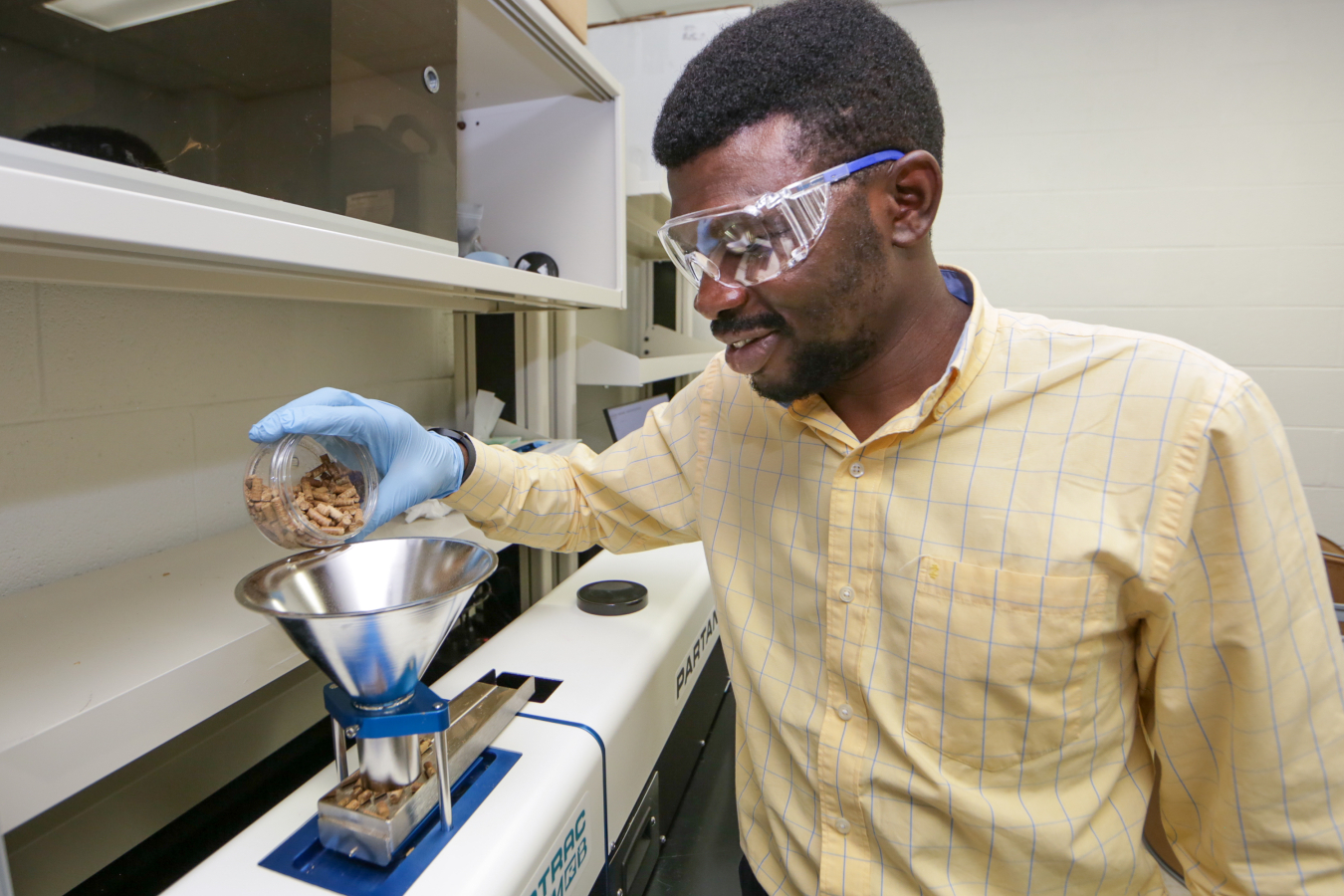
The Feedstock-Conversion Interface Consortium (FCIC) is developing the science-based understanding required to accurately predict the effects of variable feedstock attributes and process parameters on pyrolysis and gasification product quality attributes.
Objectives
FCIC’s research objectives include:
- Developing a science-based understanding required to accurately predict the effects of variable feedstock attributes and process parameters on pyrolysis product quality attributes
- Generating an operational control map that enables reliable flow and conversion behavior in pyrolysis feeding and primary deconstruction reactors.
Approach
The FCIC is coupling multiscale experimentation, modeling, and advanced product characterization approaches to accurately capture the fundamental physics and chemistry of high-temperature biomass feeding and pyrolysis reactor unit operations. This will enable quantitative prediction of critical product quality attributes.
Outcomes

A researcher evaluates how biomass physical properties impact high-temperature conversion into biofuels and bioproducts. Photo from Genevieve Martin/Oak Ridge National Laboratory.
Validated and multiscale experimental and computational frameworks allowing biorefinery designers and operators to maximize productivity and quality with variable incoming feedstock.
Impact
Biorefinery designers and operators will be able to design high-temperature unit operations and processes that are flexible and responsive to feedstock variability while maximizing productivity and profitability.
Contact
For more information, contact the FCIC.
Other FCIC Research and Capabilities
Learn about all of FCIC’s research areas and capabilities/facilities.

